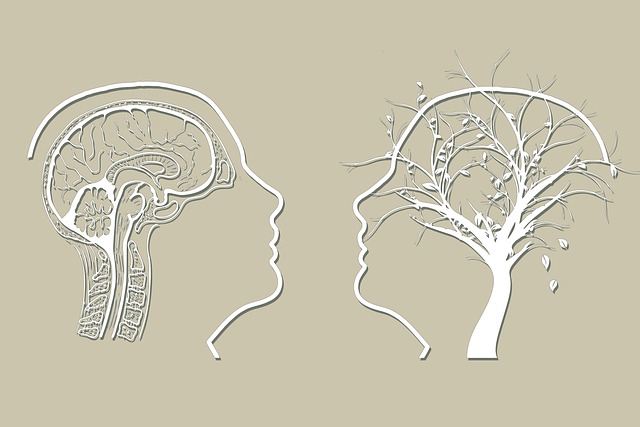Emotional Intelligence (EI) is a powerful tool for managing conditions like Parker Panic Disorder and Anxiety Attacks, with therapy offering a transformative path. Targeted interventions, including mindfulness meditation, help individuals develop EI skills to recognize emotions during panic episodes, improve self-awareness, and enhance communication. Through open dialogue about mental health, therapy reduces stigma, fostering an environment where EI can flourish. This approach benefits not only personal growth but also risk management planning for mental health professionals. Research shows higher EI levels lead to better stress management and anxiety disorder overcoming, making it a crucial component in Parker Panic Disorder and Anxiety Attacks Therapy.
Emotional intelligence (EQ) is a powerful tool in navigating life’s challenges, especially for those managing conditions like Parker Panic Disorder and anxiety attacks. This article delves into the foundational concept of EQ, exploring how self-awareness forms its core. We unravel the connection between Parker Panic Disorder and emotional intelligence, providing practical strategies to enhance EQ during therapy sessions for anxiety attacks. Additionally, we offer daily tools for cultivating emotional intelligence, highlighting its long-term benefits in overcoming mental health challenges.
- Understanding Emotional Intelligence: The Foundation of Self-Awareness
- Unraveling the Connection Between Parker Panic Disorder and Emotional Intelligence
- Strategies to Enhance EQ During Therapy Sessions for Anxiety Attacks
- Practical Tools for Daily Life: Cultivating Emotional Intelligence
- Long-term Benefits of Building Emotional Intelligence in Overcoming Mental Health Challenges
Understanding Emotional Intelligence: The Foundation of Self-Awareness

Emotional intelligence (EI) is a crucial aspect of personal and professional growth that involves recognizing, understanding, and managing one’s own emotions as well as those of others. This foundation of self-awareness forms the core upon which individuals can build their emotional resilience and effectively navigate relationships. For many, especially those who have experienced conditions such as Parker Panic Disorder and Anxiety Attacks, developing EI is a transformative journey that enables them to regain control over their emotional responses.
Therapy plays a pivotal role in cultivating EI by providing a safe space for individuals to explore their feelings and thoughts without judgment. Through techniques tailored to address mental health challenges, therapists assist clients in identifying triggers, learning coping strategies, and enhancing self-esteem—all integral components of risk management planning for mental health professionals. Moreover, by fostering an environment that encourages open dialogue about mental illness stigma reduction efforts, therapy becomes a powerful tool for personal growth, empowering individuals to embrace their emotional intelligence as a means to lead more fulfilling lives.
Unraveling the Connection Between Parker Panic Disorder and Emotional Intelligence

Understanding the intricate relationship between Parker Panic Disorder and emotional intelligence is a vital step in fostering personal growth. Panic disorder, characterized by recurrent and unexpected anxiety attacks, can significantly impact an individual’s emotional well-being and daily functioning. Through therapy, specifically focusing on techniques like mindfulness meditation, individuals with this disorder can develop essential emotional intelligence skills. These include recognizing and managing their emotions during panic episodes, improving self-awareness, and enhancing their ability to connect and communicate with others.
Emotional intelligence allows those struggling with anxiety attacks to navigate life’s challenges more effectively. By learning to identify triggers, practice relaxation techniques, and cultivate a positive mindset, individuals can build resilience and boost their confidence. Mindfulness meditation plays a crucial role in this process, helping to calm the mind, reduce symptoms of panic disorder, and promote emotional well-being promotion techniques that empower individuals to take control of their mental health journey.
Strategies to Enhance EQ During Therapy Sessions for Anxiety Attacks

Enhancing emotional intelligence (EQ) during therapy sessions for anxiety attacks, such as those experienced by individuals with Parker Panic Disorder, involves a multi-faceted approach. Therapists can foster a supportive environment that encourages clients to explore and express their emotions freely. This includes techniques like active listening, where therapists meticulously pay attention to both verbal and non-verbal cues, allowing them to better understand the client’s emotional landscape. By practicing empathy, therapists demonstrate a deep understanding of the client’s feelings, fostering a sense of trust and safety.
Additionally, therapy sessions can incorporate strategies for emotional regulation, such as mindfulness exercises, cognitive reframing, and relaxation techniques. These tools empower individuals to manage their anxiety responses more effectively. Encouraging positive thinking through affirmations and goal-setting activities further contributes to mental wellness, helping clients challenge negative thought patterns and replace them with more constructive perspectives. Regular practice of these techniques not only enhances EQ but also strengthens the therapeutic bond, leading to improved outcomes in treating anxiety attacks.
Practical Tools for Daily Life: Cultivating Emotional Intelligence

Cultivating emotional intelligence (EI) is an essential tool for navigating life’s challenges and enhancing overall well-being. For individuals dealing with anxiety, such as those experiencing Parker Panic Disorder, EI can be a game-changer. Therapy techniques focused on building emotional awareness and coping mechanisms help to reduce the impact of anxiety attacks by empowering individuals to understand and manage their emotions effectively.
One practical approach is through mindfulness exercises, which teach individuals to stay present and observe their feelings without judgment. This simple yet powerful method enables better emotional regulation, helping to break the cycle of panic and fear. Additionally, developing inner strength through self-care practices and fostering supportive relationships can significantly contribute to mental illness stigma reduction efforts. By promoting emotional well-being, these strategies not only help individuals cope with specific disorders like Parker Panic Disorder but also offer lasting techniques for enhancing overall life satisfaction and resilience.
Long-term Benefits of Building Emotional Intelligence in Overcoming Mental Health Challenges

Building emotional intelligence (EI) offers significant long-term benefits, especially in navigating mental health challenges such as panic disorder and anxiety attacks. Research indicates that individuals with higher EI levels are better equipped to manage stress and overcome anxiety disorders. This is because EI enables one to recognize and understand emotions, both their own and others’, which is crucial in managing and preventing panic attacks. By developing emotional intelligence, people can learn to interpret their feelings and triggers, allowing them to proactively address anxiety symptoms and prevent escalation.
In the context of therapy, particularly Parker Panic Disorder and Anxiety Attacks Therapy, improving EI can enhance therapeutic outcomes. It enables therapists to connect more effectively with clients by empathizing and responding sensitively to their emotional needs. This connection fosters a supportive environment, encouraging clients to openly discuss their experiences, which is essential for effective treatment. Moreover, EI helps individuals develop coping strategies that go beyond mere management; they learn to transform anxiety into a manageable state, leading to improved mental well-being and reduced risk of burnout, particularly relevant in Burnout Prevention Strategies for Healthcare Providers. Mental Health Education Programs Design can incorporate these principles to empower individuals to take charge of their emotional health and prevent stress from becoming overwhelming.
Emotional intelligence (EQ) is a powerful tool for managing mental health challenges, especially Parker Panic Disorder and anxiety attacks. By understanding and cultivating self-awareness through strategies like those employed in therapy sessions, individuals can effectively navigate their emotions and improve overall well-being. Practical daily tools further enhance EQ, leading to long-term benefits in overcoming anxiety and fostering resilience. Integrating these practices into life offers a promising path towards better mental health outcomes, especially within the context of Parker Panic Disorder and anxiety attack therapy.









